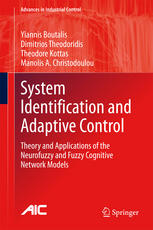

Most ebook files are in PDF format, so you can easily read them using various software such as Foxit Reader or directly on the Google Chrome browser.
Some ebook files are released by publishers in other formats such as .awz, .mobi, .epub, .fb2, etc. You may need to install specific software to read these formats on mobile/PC, such as Calibre.
Please read the tutorial at this link: https://ebookbell.com/faq
We offer FREE conversion to the popular formats you request; however, this may take some time. Therefore, right after payment, please email us, and we will try to provide the service as quickly as possible.
For some exceptional file formats or broken links (if any), please refrain from opening any disputes. Instead, email us first, and we will try to assist within a maximum of 6 hours.
EbookBell Team

4.0
66 reviewsPresenting current trends in the development and applications of intelligent systems in engineering, this monograph focuses on recent research results in system identification and control. The recurrent neurofuzzy and the fuzzy cognitive network (FCN) models are presented. Both models are suitable for partially-known or unknown complex time-varying systems. Neurofuzzy Adaptive Control contains rigorous proofs of its statements which result in concrete conclusions for the selection of the design parameters of the algorithms presented. The neurofuzzy model combines concepts from fuzzy systems and recurrent high-order neural networks to produce powerful system approximations that are used for adaptive control. The FCN model stems from fuzzy cognitive maps and uses the notion of “concepts” and their causal relationships to capture the behavior of complex systems. The book shows how, with the benefit of proper training algorithms, these models are potent system emulators suitable for use in engineering systems. All chapters are supported by illustrative simulation experiments, while separate chapters are devoted to the potential industrial applications of each model including projects in:
• contemporary power generation;
• process control and
• conventional benchmarking problems.
Researchers and graduate students working in adaptive estimation and intelligent control will find Neurofuzzy Adaptive Control of interest both for the currency of its models and because it demonstrates their relevance for real systems. The monograph also shows industrial engineers how to test intelligent adaptive control easily using proven theoretical results.